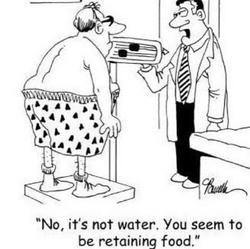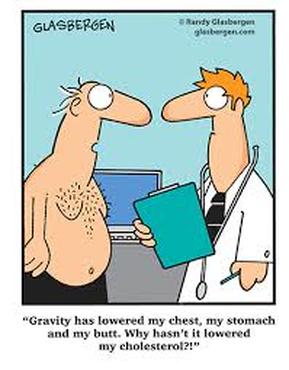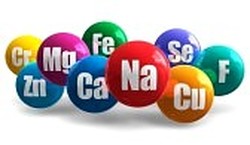Articles on this site are for information purposes and should not be solely used as diagnostic tools. Always consult with a medical advisor if you are in any doubt.

We believe that with an informed, sensible approach anyone can extend their life -however, extending your life wouldn´t mean much if it simply meant living more years in a weak, painful body.
A major problem is created by the very industry supposedly there to help us, the "Health Industry". It is continually extolling us to "eat more of this"; eat less of that"; "carbs are in", "protein is out", "follow the "F" Plan, use the "Atkins" approach; etc, etc,.....
There is much useful information available, but it seems to change frequently and often contradicts itself! This is where we believe we can help by cutting through the hype and helping you make decisions that fit with your aspirations and most importantly your lifestyle.
Our approach is threefold:-
HEALTHY DIET VS DIETING
75%-90% of all dieters who lose weight can expect all of the weight to return within 1 to 3 years of "completing " the diet. Scientists have long known that stringent dieting causes a corresponding drop in our resting metabolic rate, making it very difficult, often impossible to continue the fat loss process.
A major problem is created by the very industry supposedly there to help us, the "Health Industry". It is continually extolling us to "eat more of this"; eat less of that"; "carbs are in", "protein is out", "follow the "F" Plan, use the "Atkins" approach; etc, etc,.....
There is much useful information available, but it seems to change frequently and often contradicts itself! This is where we believe we can help by cutting through the hype and helping you make decisions that fit with your aspirations and most importantly your lifestyle.
Our approach is threefold:-
HEALTHY DIET VS DIETING
75%-90% of all dieters who lose weight can expect all of the weight to return within 1 to 3 years of "completing " the diet. Scientists have long known that stringent dieting causes a corresponding drop in our resting metabolic rate, making it very difficult, often impossible to continue the fat loss process.

Also, without appropriate exercise, calorie restriction will mean losing muscle and bone before fat! This again will slow the metabolism.
You can improve your metabolic rate through adjustments in your eating patterns and by making simple changes to some of the foods you eat. And there is adequate evidence to show that plate sizes can have a significant effect on your weight.
See:
how you metabolism works
calculating your metabolic rate
plate sizes
importance of water
GI Food
FAT LOSS VS WEIGHT LOSS
See if you agree with the following statement. Fat loss and weight loss is essentially the same thing, interchangeable. If, like many people, you said yes, you guessed wrong. Fat loss and weight loss are not the same things at all. In fact, they are not even close.
If you browse the diet book section of your local bookstore or surf the Web, you will see that most books and diet programs contain the words weight loss in their title or subtitle. Most diet programs are about weight loss, which is the incorrect approach to this whole area.
Here is why. You do not want to concentrate on losing weight, and most importantly for your health, you do not want to lose muscle. Our weight is made up of tissue, muscle, bone, blood, fat, water, and the rest of our physical body. Muscle, like every other component of our physical make-up, is most important. And fat is also a necessary, vital part of our physical make-up.
It is excess body fat that is the big problem. Having excess body fat increases your risk of heart attack, stroke, diabetes, hypertension and many other serious diseases. And perhaps most serious of all is that excess body fat is being linked to many more types of cancers than previously known.
Excess fat is bad news and that is what we urge you to focus on, fat loss. The following is so important it bears repeating: you do not want to lose weight you want to lose excess fat.
You can improve your metabolic rate through adjustments in your eating patterns and by making simple changes to some of the foods you eat. And there is adequate evidence to show that plate sizes can have a significant effect on your weight.
See:
how you metabolism works
calculating your metabolic rate
plate sizes
importance of water
GI Food
FAT LOSS VS WEIGHT LOSS
See if you agree with the following statement. Fat loss and weight loss is essentially the same thing, interchangeable. If, like many people, you said yes, you guessed wrong. Fat loss and weight loss are not the same things at all. In fact, they are not even close.
If you browse the diet book section of your local bookstore or surf the Web, you will see that most books and diet programs contain the words weight loss in their title or subtitle. Most diet programs are about weight loss, which is the incorrect approach to this whole area.
Here is why. You do not want to concentrate on losing weight, and most importantly for your health, you do not want to lose muscle. Our weight is made up of tissue, muscle, bone, blood, fat, water, and the rest of our physical body. Muscle, like every other component of our physical make-up, is most important. And fat is also a necessary, vital part of our physical make-up.
It is excess body fat that is the big problem. Having excess body fat increases your risk of heart attack, stroke, diabetes, hypertension and many other serious diseases. And perhaps most serious of all is that excess body fat is being linked to many more types of cancers than previously known.
Excess fat is bad news and that is what we urge you to focus on, fat loss. The following is so important it bears repeating: you do not want to lose weight you want to lose excess fat.

See: muscle vs fat
good fats, bad fats
the critical importance of your PH balance
your liver and fat loss
BMI vs LBM (lean body mass)
SUPPLEMENT TO SUPPORT
Why, you may wonder, does a good diet not contain all the vitamins and minerals we need for optimum health?
Studies show us that nutrient levels in food are falling - there are less vitamins and particularly minerals in fresh produce today, for example, than in the eighties. This is partly due to intensive farming on nutrient-depleted soils and also storing "fresh" food for longer. For example, oranges may take four to five months from picking before appearing on the supermarket shelves.
Refining food, e.g. turning brown into white, also strips away valuable nutrients. In wheat, for example, 25 nutrients are removed in the refining process that turns it into white flour, yet only five (iron, B1, B2, B12 and folic acid) are replaced. On average, 87% of the essential minerals zinc, chromium and manganese are also lost.
Anti-ageing expert, Dr Bruce Ames, who helped put antioxidants on the map, has no doubt that common micronutrient deficiencies accelerate the ageing process, and that supplementation reverses this process
